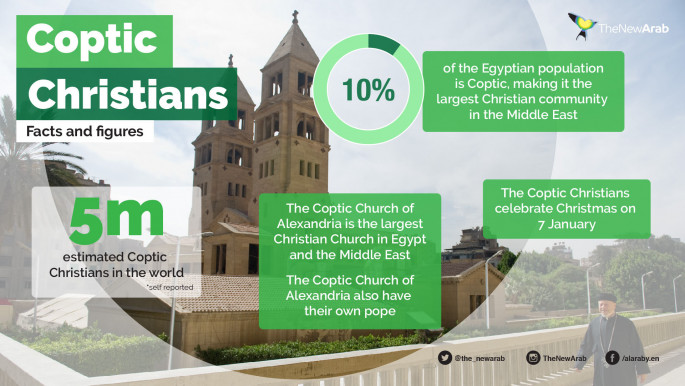Egypt's Islamic foundation cancels Ramadan celebrations following IS attack
Egypt's state-run Islamic foundation cancelled its annual celebrations marking the beginning of the holy month of Ramadan after an attack on a bus carrying Coptic Christians left dozens dead on Friday.
"Dar al-Iftaa cancelled the celebration… in light of the mourning and grief the country is experiencing due to the appalling terrorist act that took place in Minya this morning," it said in a statement.
Shawqi Allam, the Grand Mufti and chief of Dar al-Iftaa, also condemned the deadly attack.
"Those traitors violated all religious values and human norms by shedding blood and terrorising innocent people," he said in a statement.
Earlier on Friday, masked gunmen attacked a bus carrying Christians on a visit to a monastery south of the Egyptian capital, killing at least 28 people including two children, in the latest attack on the religious minority.
In response, Egyptian President Abdel Fattah al-Sisi said in a speech at the presidential palace late on Friday that extremist camps in Libya had been hit in air raids.
"What you've seen today will not just pass by. The camps that these elements have come from and been trained in have been stuck very heavily today," Sisi said.
"Egypt will never hesitate to strike terrorist camps anywhere… inside Egypt, of course, or abroad."
He appealed directly to US President Donald Trump, who Sisi met with in the Saudi capital this week, to take the lead in fighting terror.
"Your Excellency, I trust that you will be capable of making fighting global terrorism your first priority," the army chief-turned-president said.
He added that Islamic State group have fled Syria and sought refuge in Libya have been attempting to bring down the Egyptian state by "sowing sedition between Christians and Muslims".
Minutes after the speech ended, state media announced that Egypt's air force launched six airstrikes against "terror camps in Libya" in retaliation for the attack on Coptic Christians.
It said extremist training camps in the eastern Libyan city of Derna had been hit.
Condemnation has poured in from around the world in the wake of the attack, which came a day before the first day of Ramadan.
 |
Those traitors violated all religious values and human norms by shedding blood and terrorising innocent people. - Shawqi Allam |
 |
Trump decried the attack, calling on allies to band together to defeat terrorism.
"The bloodletting of Christians must end, and all who aid their killers must be punished," he said in a statement issued by his press office.
"Terrorists are engaged in a war against civilisation, and it is up to all who value life to confront and defeat this evil."
IS claimed responsibility for the three suicide attacks that targeted the churches in December and April.
An 11 December attack in the heart of Cairo on the Saint Peter and Saint Paul church, adjacent to the headquarters of Coptic Pope Tawadros II, killed 29 people.
On 9 April, 45 people were killed in twin church bombings claimed by IS as Christians gathered to celebrate Palm Sunday in the cities of Tanta and Alexandria.
Sisi declared a three-month state of emergency on the day of the April church attacks.
IS has threatened to carry out more attacks against Egypt's Christians, who make up around 10 percent of its population of about 90 million.
Copts have endured successive attacks since the ousting of Islamist President Mohamed Morsi in a 2013 military coup, led by then defence minister Sisi.
More than 40 churches were targeted nationwide in the two weeks after the deadly dispersal by security forces of two pro-Morsi protest camps in Cairo on 14 August that year, Human Rights Watch said.
They face exclusion from high-level public posts, including the military, and sectarian violence is common.
 |
| [Click to enlarge] |


